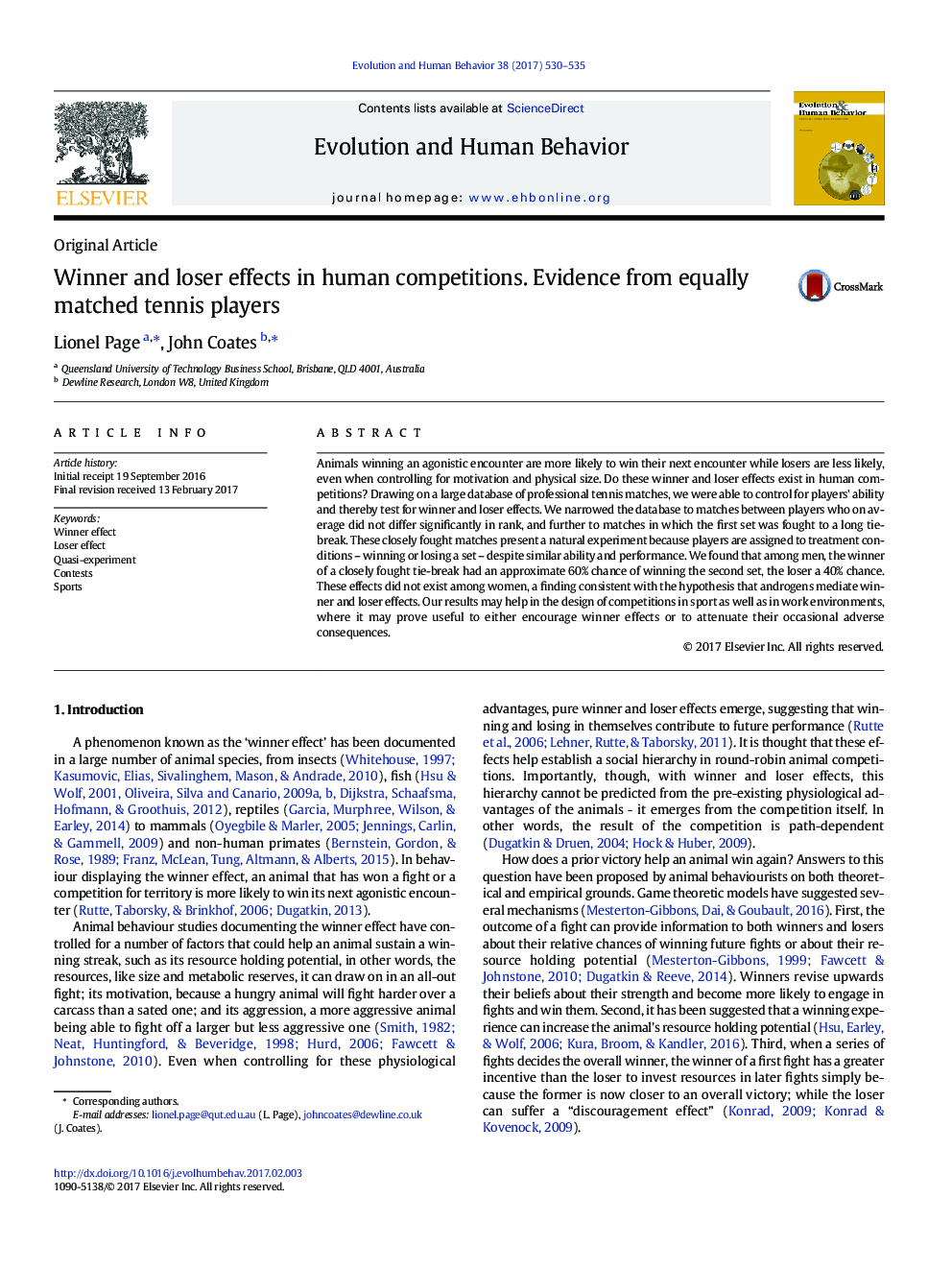| Article ID | Journal | Published Year | Pages | File Type |
|---|---|---|---|---|
| 5044820 | Evolution and Human Behavior | 2017 | 6 Pages |
Animals winning an agonistic encounter are more likely to win their next encounter while losers are less likely, even when controlling for motivation and physical size. Do these winner and loser effects exist in human competitions? Drawing on a large database of professional tennis matches, we were able to control for players' ability and thereby test for winner and loser effects. We narrowed the database to matches between players who on average did not differ significantly in rank, and further to matches in which the first set was fought to a long tie-break. These closely fought matches present a natural experiment because players are assigned to treatment conditions - winning or losing a set - despite similar ability and performance. We found that among men, the winner of a closely fought tie-break had an approximate 60% chance of winning the second set, the loser a 40% chance. These effects did not exist among women, a finding consistent with the hypothesis that androgens mediate winner and loser effects. Our results may help in the design of competitions in sport as well as in work environments, where it may prove useful to either encourage winner effects or to attenuate their occasional adverse consequences.
